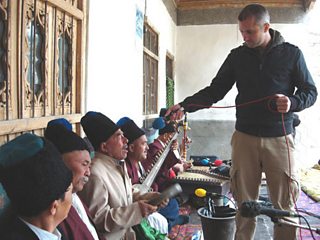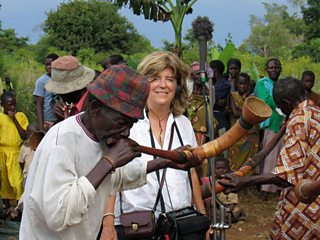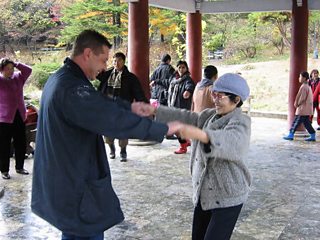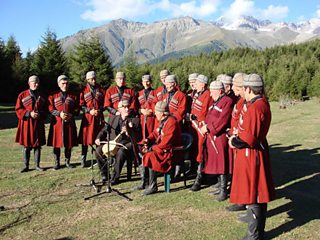
Radio is a great and intimate medium. It's with you in the shower, as you doze in bed, as you cook, as you drive. Part of its charm is that what is broadcast at any given moment is gone for ever. There's no going back, rewinding or dwelling. Of course, this has, to some extent changed with the advent of listen-again, the and so on. But even if you listen to your favourite programme in this way, it's only there for seven days and you'll probably listen to it in exactly the way you would have listened to it had you caught it "live".

This is all very well, but when you spend your professional life going to huge lengths to record dying traditions of folk music in remote parts of the world, maybe, you would like the recordings to be available for a little more than seven days. And that's what's behind the new on the .

Radio 3 has actually been recording world music on location for a long time, but activity has really increased in the past ten years. It's exactly ten years since (Saturday, 3pm) was launched. This is our tenth year of live coverage (this weekend, in fact). It's nearly ten years since Andy Kershaw joined us from Radio 1 (and this year we've just started working with him again after a break of 3 years). And in those ten years we've travelled the world making professional-quality recordings of local musicians, festivals, and more established musicians, but recorded in their natural habitat. So we thought that it was about time to organise some of these recordings and make them more accessible via the Radio 3 website.

As for the highlights, well it really is difficult to know where to start. Perhaps with . The first radio documentary ever made inside the Hermit Kingdom with songs about the Great Leader. And the Dear Leader. And the Eternal Leader (aka the Great Leader). Oh, and of course the Great General (aka the Dear Leader).
You could then journey to Georgia and hear the ancient songs to accompany wrestling. We recorded Eldar Shoshitashvili in Tbilisi, Georgia's capital. In Soviet times he was an Olympic wrestler, and wrestlers to this day in Georgia are accompanied by the duduki (a haunting end-blown wind instrument). These days, Eldar has swapped roles and instead of wrestling himself, accompanies matches with his duduki. This bear of a man gets the sweetest sounds out of his duduki. And he also enjoys a drink: the last and most touching song he played for us was all about the morning-after-the-night-before. And that's a subject he could relate to - he proudly told us that the night before he'd drunk a mere seven litres of wine.

Having checked out the ancient Georgian polyphony that we recorded - courtesy of the Georgian Airforce, a crew led by Capt. Shagoyan, and a Russian-built MI8 helicopter - you could go to Iran. There, in the very far south of country, we recorded the group Jahle. Just as we finished the session, Andy Kershaw and I heard gunshots coming from the beach near to where we'd made the recordings. From a safe distance we watched the Iranian police fire warning shots at a group of smugglers bringing TVs, cigarettes and booze ashore. As the action unfolded, our engineer James Birtwistle went inside the house of the musicians to find them jamming. There, as the pirates frantically tried to restart their outboards, James recorded the achingly beautiful "Lullaby". A piece that's become legendary - it generated a huge response from Andy's listeners and has even been arranged and recorded by the Kronos Quartet.
And after Iran? Let's see. I know, Israel. On the archive you can hear highlights recorded at the Jerusalem International Oud Festival. One memorable night there involved a concert given by the Arab-Israeli musician from Nazareth, Dalal Abu Amneh. Her performance was terrific, but the highlight for me was the audience. The festival had laid on transport for Arabs from East Jerusalem and given them very reasonably-priced tickets. That was half the audience. The other half were Sephardic Jews. Sitting next to each other, this mixed audience of Jews and Arabs sang along in Arabic. Both Semitic peoples, they share a common culture and the political divides that tear the region apart were nowhere to be seen.
So if any of those (and many many more) were moments that you heard as you showered, dozed, cooked or drove, and thought, "I'd love to hear that again". You now can.
James Parkin is Senior Producer, Radio 3
- The is live now on the Radio 3 website